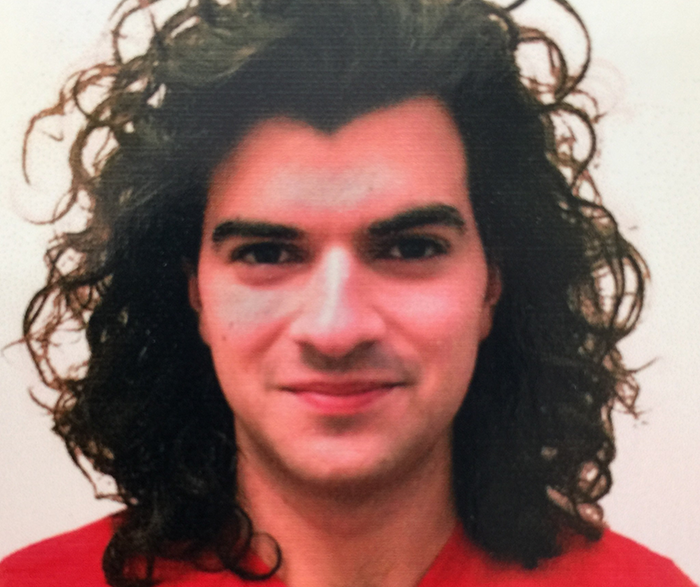We’re taking time over the following weeks to get to know the members of the GSA’s Early Career Scientist Committees. Join us every week to learn more about our early career scientist advocates.
![]()
Giovanni Hanna
Co-Chair, Communication and Outreach Subcommittee
University of California Davis
Research Interest:
The unfolding development of a fertilized egg into a multicellular individual is a very exciting field of research. My interests in evolutionary-developmental biology lie in the regulation and function of genes expressed in the male reproductive system in fruit flies, where certain organs have been shown to evolve rapidly—a pattern also observed in many other animals. In the Kopp Lab, I study how recruitment of a gene into a given organ affects development and function of that organ.
We all started our lives as a one-celled individual, yet we live our lives as multicellular individuals with hundreds of different cell types, including those in our brains, eyes, and hearts. The identity and function of a given cell type rely on the tight regulation of an important collection of genes expressed in that cell, and the expression of that exact collection of genes is not equivalent across cell types. In the Kopp Lab, I am comparing the regulation of these important genes in the male reproductive system across various species of fruit flies and studying the effects of these gene recruitments on organ function. Why is it that certain cell types evolve faster than others? Can the recruitment of one gene in a given cell type cause a major rewiring of the pre-existing circuit? How far back can a gene network be re-wired?
As a PhD-trained scientist, you have many career options. What career paths interest you the most?
Like others in academia, I aim to run my own research lab one day, and I am likely to remain loyal to the fruit fly as my model of study. Fruit flies and humans share ~50% of their genes and ~60% of their disease genes. More than 100 years of work on this beautiful model have allowed us to determine the function of hundreds of different genes in fruit flies, many of which are conserved in humans. In fact, much of what we know about human development and disease comes from the leaps in knowledge achieved by studying the fruit fly and other models. There are so many more questions that can be answered by asking for help from the fly.
Teaching to inspire is also a main goal of mine, so I hope to be able to teach at the university level as I run my research lab.
In addition to your research, how else do you want to advance the scientific enterprise?
My highest priority is to strengthen the relationship of scientists with other members of the public. Serving our communities can be extremely fulfilling; hopefully, outreach efforts to communicate our reasons for doing science will lead members of the public to stand up for science.
At a time when misinformation is widespread, dedicating time to advocating for science 1) allows the public to develop their views on topics such as GMOs and stem cell science, 2) empowers them to better distinguish fact from opinions in their daily lives, and 3) decreases trust in sources of misinformation. At the same time, participating in outreach helps scientists better understand the sources of confusion, which helps us improve outreach events.
Scientific outreach is essential to the development of trust between scientists and others in our communities. Our community of scientists have advanced skills that move the world forward, yet much of that goes unnoticed when our knowledge remains limited to primary or even secondary journals. Genuine outreach in all forms has profound impacts on our societies, and we are the voice that mediates the sharing of these findings.
As a leader within the Genetics Society of America, what do you hope to accomplish?
Many important discoveries and advances were made in model organism communities and have advanced the broader scientific community by providing the foundational knowledge required to explore new areas of research and develop disease treatments. Our committee is working to highlight these contributions and highlight the ways they have helped advance other fields. We hope that the sharing of these stories will help all individuals understand the importance of model organism research to advancing the scientific enterprise.
I also aim to dispel the negative image that many scientists have with respect to teaching at the community college level. Many junior colleges now teach advanced biology classes with impressive lecture and laboratory components, and such classes often better prepare students for their future studies or their work in the biotech industry. Since many community colleges have biology departments with high standards, I hope that sharing some of these experiences and stories with our community will encourage others to explore this career option.
Lastly, many outreach resources are made available by geneticists in our different communities, and I hope to create a centralized space for access to such resources.
Previous Leadership Experience:
- Community & Outreach Coordinator – Integrative Genetics and Genomics Graduate Group, University of California, Davis
- Volunteer – Bridges to the Future Program
Find Giovanni on twitter @giovannihanna4.































